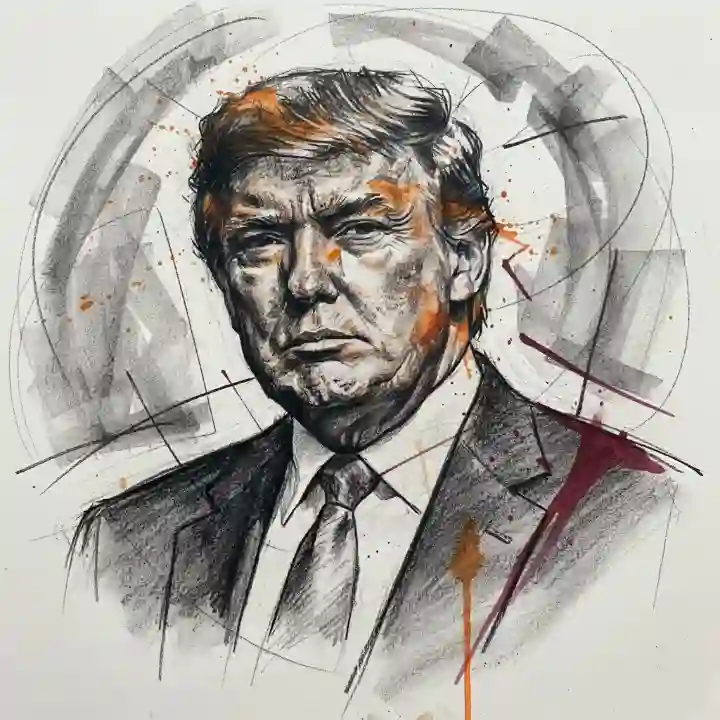In a development that underscores the high stakes of political appointments tied to international trade, Bryce McFerran, President Donald Trump’s nominee for a key role at the U.S. Export-Import Bank (EXIM), withdrew his nomination amid intense scrutiny over his connections to Russian businesses and family ties to Kremlin insiders. This article dissects the “Trump EXIM nominee withdraws amid Russia ties scrutiny 2025” situation with clarity and insight, giving business and finance professionals a solid understanding of the matter and its broader implications.
Setting the Stage: What Happened and Why It Matters
Bryce McFerran was nominated to serve as the first vice president and vice chair of EXIM, a federally backed agency essential to financing American exports. However, revelations emerged about his previous executive role at a steel trading firm partially owned by Roman Abramovich, a Russian oligarch sanctioned by the UK, as well as his marriage into a family with Kremlin links facts reported first by The Washington Post and others.
Faced with growing concerns, Democratic senators, particularly Sen. Elizabeth Warren, challenged McFerran on potential conflicts of interest and national security risks given EXIM’s role managing sensitive financial data and supporting American businesses abroad. Amid this scrutiny, McFerran withdrew his nomination on October 27, 2025, though he remains EXIM’s acting chief banking officer until a replacement is named.
Why This Is Important: The Export-Import Bank’s Role and Risks
Understanding the EXIM Bank’s mission is key here. The agency provides loans, guarantees, and insurance helping U.S. companies export goods and services internationally. Its financing decisions can influence major global energy projects, infrastructure deals, and trade partnerships.
Having a top official with financial and familial ties to Russian entities particularly involving sanctioned oligarchs raises red flags for conflicts of interest at a time when export policies intersect with geopolitical tensions. This situation illustrates how business, governance, and national security can quickly intertwine in federal appointments.
Also, considering McFerran’s reported $1 million donation to Trump’s campaign, the case raises larger questions about political influence and the vetting process for critical positions. Managing transparency and ethics is paramount to maintaining investor confidence and protecting diplomatic interests.
Breaking Down the Controversy:
Picture this: You run a lending shop that supports thousands of local businesses expanding overseas. Suddenly, one of your key managers has deep connections to a country currently under sanctions, intertwined by family and former business gigs. How confident would your clients feel about getting impartial support?
In McFerran’s case, his role at a Swiss subsidiary of Evraz, a steel company co-owned by Abramovich, plus his family connections to Kremlin aides, prompted concerns about divided loyalties or inadvertent access to sensitive American business details. Senators worry such backgrounds might impair objective decision-making.
From a practical standpoint, this withdrawal avoided a potentially contentious confirmation battle but highlighted the complexity of vetting individuals in today’s interconnected world economy.
Lessons for Business and Governance: Navigating Political Appointments
This episode offers several practical insights:
-
Due Diligence Is Critical: Organizations and agencies must rigorously vet candidates for conflicts of interest especially when geopolitical risks are involved.
-
Transparency Builds Trust: Open disclosure about business ties and family relations can address concerns before they escalate.
-
Political Donations Influence Scrutiny: Large campaign contributions often attract heightened examination both ethical and political.
-
Risk Mitigation Plans: Agencies should have contingency strategies if nominees face disqualifications or withdrawals.
-
Stakeholder Communication: Clear communication with employees, investors, and the public can stabilize confidence during controversies.
Common Challenges Around Political Nominations
Hiring for politically sensitive roles often encounters these pitfalls:
-
Incomplete Vetting: Details surfacing post-nomination can disrupt confirmations.
-
Partisan Battles: Scrutiny tends to magnify in polarized political climates.
-
Geopolitical Sensitivities: Connections to foreign governments, especially adversaries, complicate appointments.
-
Ethical Concerns: Disclosure of financial interests and relationships is critical but sometimes overlooked.
Effective solutions focus on solid vetting procedures, early bipartisan consultations, and ethical transparency—practices valuable for both public and private sector leadership searches.
A Personal Reflection on Political and Business Intersections
In covering federal appointments for years, I’ve observed how even qualified nominees can face downfall due to overlooked conflicts or perceived loyalties. The McFerran case reminds me of when a client’s key executive candidate was quietly withdrawn after undisclosed international ties emerged during background checks. While difficult, stepping back preserved institutional integrity and avoided protracted battles.
Business leaders should take note: reputational risk connected to leadership choices can ripple far beyond the initial appointment and influence stakeholder trust.
Conclusion: What Business and Finance Professionals Can Take Away
The “Trump EXIM nominee withdraws amid Russia ties scrutiny 2025” episode is more than political drama. It highlights critical intersections of commerce, geopolitics, and governance affecting export finance and international trade policy.
Key takeaways include:
-
The importance of thorough vetting and transparency in politically appointed roles.
-
How global business links impact national security perceptions.
-
The influence of political donations on nomination processes.
-
The value of preparedness and clear communication during nomination controversies.
For investors, exporters, and policy watchers, these insights are vital when assessing risks tied to government-backed trade initiatives and the officials leading them.
What’s your view on political vetting for key trade roles? Share your perspective below, or consider consulting ethics and governance experts to navigate complex appointment landscapes.
Next Article:
